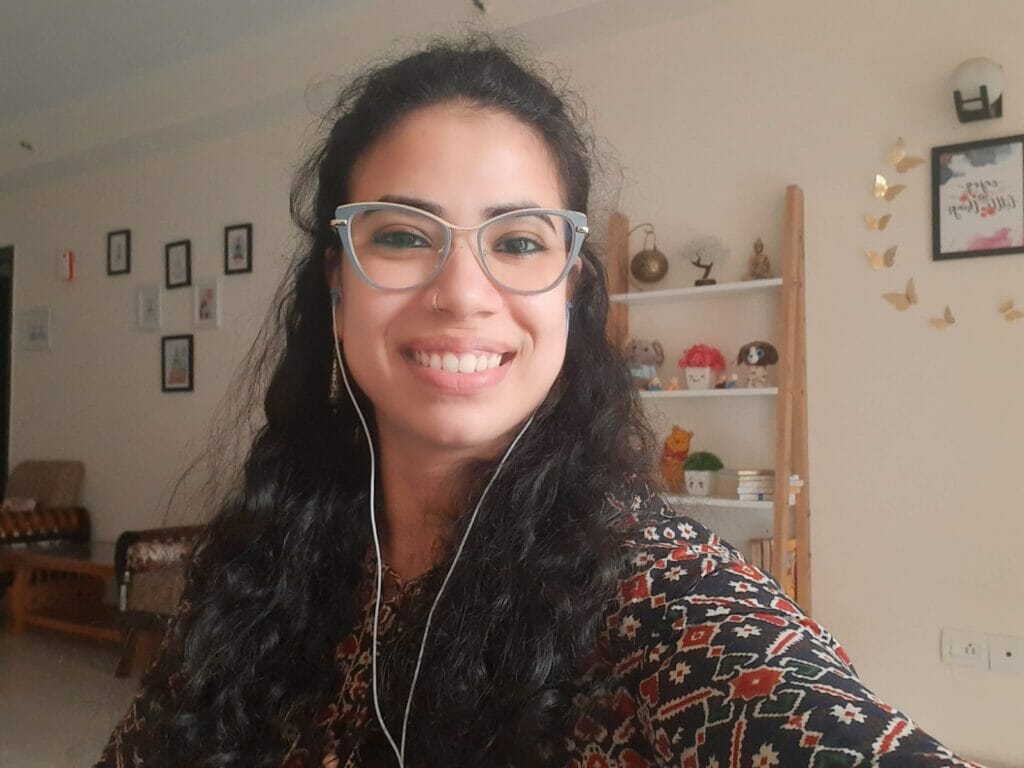It has been just over a month. The incident at an educational institute in NOIDA where a young boy killed his girlfriend, and then killed himself, sent shockwaves through the city. Unfortunately, this is no isolated case. Deaths by suicide or criminal acts involving young adults are being reported with alarming frequency. Incidents like the NOIDA one is just another stark reminder of the grave mental health issues among a high proportion of our adolescent and youth population. Especially post-COVID.
It is by now well known that certain behavioural trends among children are tell-tale signs of underlying mental health issues — bullying, social isolation, substance abuse, self-harm, stress, depression, anxiety and suicidal tendencies.
But what are the underlying factors?
While there has been no scientific research in India to understand the extent of the pandemic’s impact on mental health, a UNICEF survey covering 21 countries in The State of the World’s Children 2021 report said one in seven youngsters in India, between 15 and 24 years of age, has shown some form of mental health issues such as feelings of depression or disinterest. Out of this number, only 41% felt there was a need to seek help from a mental health professional. This was the lowest across the 21 countries surveyed.
Read more: Loneliness: An urban epidemic that carries the same risk as smoking 15 cigarettes a day!
“COVID-19 has done a lot of harm to the psychology of school kids,” says Nidhi Garg, a school teacher in one of Delhi’s premier schools. “During the pandemic, my friend’s 17-year-old son got addicted to online games and was glued to his phone. His entire behaviour has changed: he has become ill-mannered, speaks disrespectfully.”

Nidhi, like many others, knows that some games have a detrimental impact on a teenager’s psychology. “But he does not listen to us. We have no idea what he does in school”.
“COVID-19 and the uncertainties of the post COVID period have impacted students’ psychology, and we do not know how long it will continue,” adds Dr Bishnupriya Dutt, Professor, Theatre and Performance Studies, School of Arts and Aesthetics, Jawaharlal Nehru University (JNU). “Mental Health is given importance nowadays, but the problem is too huge. Whatever is being said or done now will never be enough”.
Are educational institutions failing our youth?
Under the prevailing circumstances, mental health awareness and promotion should be top priority for all educational institutes. “But we hardly attach any importance to it,” says Prachi Srivastava, Child and Adolescent Psychologist and Founder, Stapoo –Counselling Intervention Centre for Young Adults.
“Students are given too much exposure to different things in formative years. As a result, by the time they reach their teens, they often develop performance anxiety. That anxiety makes them dysfunctional and they find it difficult to cope even if the smallest demand or expectation is not met. Plus the challenges posed by remote learning, the line between the fantasy world and the real world has evaporated”.
Education professionals have recognized the impact a student’s mental health has on learning and achievement. They realize that there’s a great deal that can be done to help students with mental health issues.
As a primary school teacher with more than 10 years of experience, Nidhi says: “All schools are supposed to have a counsellor. But how can one or two counsellors look after so many students? Schools do not give importance to mental health.”

According to Prachi, the various incidents of young adults in school or college taking to crime clearly indicates that their emotional health is not prioritised as much as academic achievements. “And for that, parents, teachers and senior school management are equally responsible. It is for them that a mental health course should be designed.”
“They (children and teens) live with a fragile ego identity. Because they see their parents living a robotic life and talking about materialistic things, they copy that. What do you say when a five-year-old child talks about brands?” she asks.
According to Prachi, recognizing and addressing emotional distress, fostering a sense of belonging, and providing accessible mental health support should be integral parts of educational systems. “Right now, good role models are missing. Life is seen as a 20-second insta reel where transformation takes just 20-seconds and results in a so called perfect life magically.”
Education policy and students’ mental health
A lot is being said about the New Education Policy (NEP) 2020, which provides for a “a holistic, 360-degree, multidimensional report (holistic progress card) of all students that reflects in great detail. the progress as well as the uniqueness of each learner in the cognitive, affective and psychomotor domains.”
As part of the policy, teachers are asked to focus on socio-emotional learning so as to ensure a student’s holistic development. NEP 2020 also addresses concerns over physical and mental health, emphasising on well-trained social workers, counsellors and community involvement in the school system.
However, the implementation of NEP 2020 itself has left students at various levels with heightened levels of stress. Students in the 9th and 10th grades are particularly affected as they navigate these transitional phases and are grappling with uncertainty on various fronts.
“There is no one to guide us,” says a 17-year-old student in one of Delhi’s best known schools (name withheld on request), “My school is preparing for the changeover, but there is no clarity about it. We are stressed and anxious about our future.”
The parent of a 10th standard girl studying in a public school in Vasant Kunj, New Delhi, also says that there is no clear communication about the changes in the curriculum, assessment methods and evaluation criteria. “I think counselling services and mentorship programs will help our children to adapt to the new educational landscape,” the parent added.
Highlights of the New Education Policy 2020:
- The present school system will be divided into 5 + 3 + 3 + 4 stages – Foundation, Preparatory, Middle & Secondary respectively.
- Mother tongue or regional language will be taught up to at least class 5.
- Vocational education will be integrated from class 6 with 10 days of mandatory internship.
- National Testing Agency will conduct SAT-Like college entrance tests twice a year.
- Students will be benefitted from a 4-Year multi-disciplinary bachelor’s program.
- Mid-term drop-out students will be able to complete the degree after a break.
- Foreign colleges could enter India, and Indian universities would go global.
(Source: Summarised from the National Education Policy 2020, Ministry of Human Resource Development, Government of India.)
Emotional blinding and hijacking
The incident in NOIDA also points to the dire consequences that can arise from emotional blinding and hijacking.
Says Prachi: “I meet many young adults who are not able to think rationally. Fear, insecurity and anger completely blind them. And at that moment if somebody does not come to their rescue, they can act in a bizarre, irrational manner, something that they would never do otherwise. This may have been the case in the NOIDA killing.”
The term ’emotional binding andhijacking’ was coined by Psychologist Daniel Goleman. It means when the amygdala – the part of the brain associated with emotional processing – takes over standard reasoning, resulting in rationality becoming the first victim. During this period, either fear or anger, turn us completely blind and make us act in a way that otherwise we would never do.
According to her, families must own responsibility for such mental health breakdowns. “To parents, nothing else matters as much as getting good grades. They have forgotten to teach children that there’s nothing wrong with being vulnerable and weak. They only teach children to be go-getters and aggressors. They are not taught to be empathetic.”
Read more: India’s suicide crisis: The unimaginable agony of those left behind
The lack of empathy, a much-needed trait, is also what another parent talks about. “We returned to India from the UK in 2002 and live in Gurgaon,” shares Baljeet (name withheld on request), “My daughter completed engineering studies from one of the top institutes. But bullying in college triggered her mental health issues. I do not know what they did to her, but today she cannot stay in a job for long. She picks up quarrels easily, has become aggressive and begins to cry suddenly.”
He blames those children who ragged her. “Today’s children lack sympathy or empathy. They just want to have fun and win.”

Dr Bishnupriya also rues the negligence of overall well-being and the undue emphasis on academic performance, prestige and conformity to societal norms. “This leads to emotional suppression, a lack of coping mechanisms and an increased risk of mental health issues,” says Bishnupriya. “We need collaborations with working mental health professionals, students, academicians, and frequent dialogues”.
In several other countries, educational institutions are the seat of mental health programmes. In New York, in 2018, School Mental Health Programme (SMH) was launched. The objective of SMH is to promote healthy social, emotional and behavioural development of students, building collaborative relationships between the school and student families and communities. “But in India, educational institutions face budget constraints, stigma surrounding mental health, lack of awareness and are living in denial,” says Prachi.
Filling in emotional gaps
Children often carry their emotional baggage to school. “A few years ago, a student in my primary class suddenly stopped paying attention to her studies,” says Sarupa Reddy, a school teacher in a well-known public school in Ghaziabad. “It took me some time to notice that something was not right. After a lot of cajoling, I gained her trust after which she told me how her father beats her mother,”
The absence of a sense of belongingness in today’s hyper-connected world make the role of the educational institution even more important. “The lack of a strong support system can lead to feelings of isolation and desperation, amplifying the risk of emotional disturbance and extreme actions,” says Nidhi.
Adds Baljeet: “It is essential that educational institutes, peers and society as a whole recognise the importance of mental health and work towards creating a supportive environment that values emotional well-being alongside academic achievements. And above all, children should be taught to be empathetic.”
Helplines
Smile Foundation
Tel: 011-43123700
Email: info@smilefoundationindia.org
Pratham Education Foundation
Tel: 011-26716083
Email: info@pratham.org
Katha
Tel: 011-41466600
Email: info@katha.org
STAPOO – Counselling Intervention Centre for Young Individuals
Tel: 9871381259
Email: prachi@stapoo.in
E and H Foundation- Enabling Quality Education and Health for Underprivileged Children
Tel: 011-40634830
Email: eandhfoundation@gmail.com